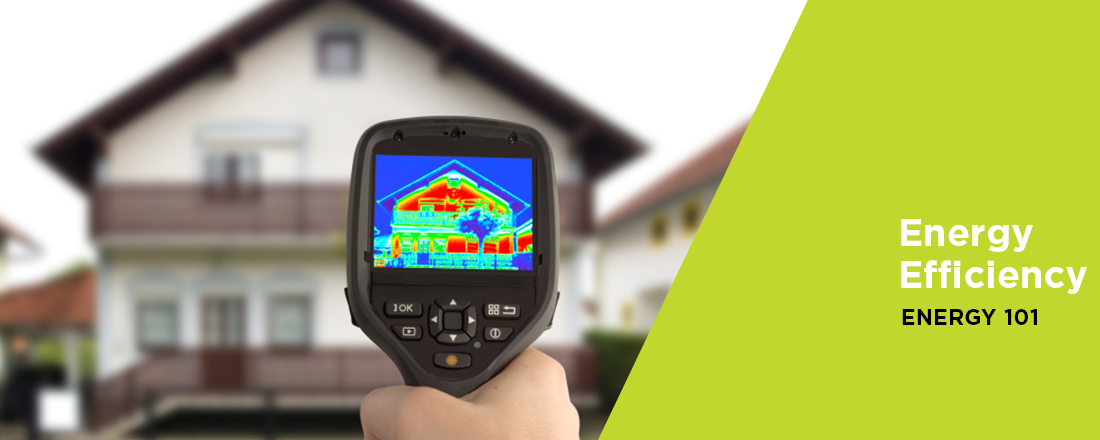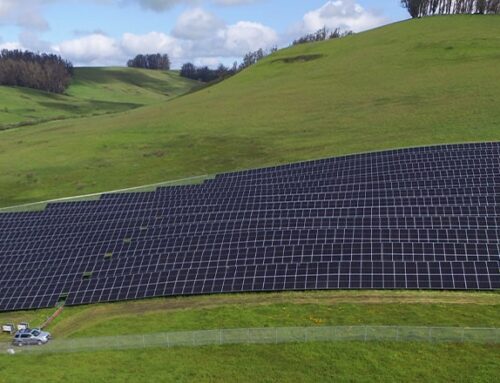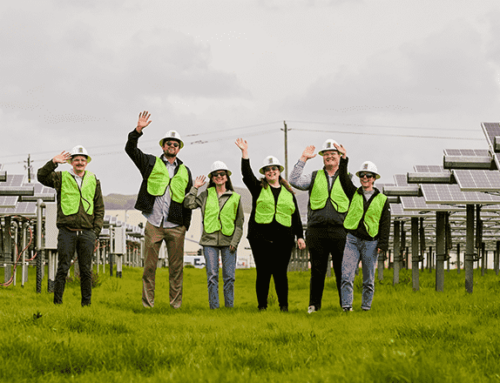MCE’s Energy 101 Series focuses on the why and how of renewable energy so that you can learn more about concepts like the benefits of biomass and the science behind solar. Looking for more? Check out the links in this blog to read more about Energy 101 or to dive deeper into our Energy Expert series.
Cutting down on unnecessary energy use helps lower utility bills, reduce greenhouse gas (GHG) emissions, and reduce strain on the electric grid.
What’s the difference between energy efficiency and energy conservation?
Both energy efficiency and energy conservation refer to reducing the total amount of electricity used. However, they aren’t quite the same. Energy efficiency refers to using less energy to achieve the same outcome. For example, switching from incandescent bulbs to LED light bulbs provides the same amount of light while using less electricity. Energy conservation, on the other hand, is an effort to use less energy overall. Energy conservation efforts can include both energy efficiency upgrades and actions like turning off the lights when you leave the room.
Why is energy efficiency so important?
With climate change making our environment hotter and drier, we are using more energy to cool our homes and transport water. As a result, energy suppliers are struggling to meet the demand, which can cause power outages.
Implementing energy efficiency measures reduces demand on the grid, helping keep the power on and costs down. For more information on outage events, see What’s the difference between a PSPS and a FlexAlert?
Grid efficiency can also be improved by using smart grids. A smart grid is an electric grid that utilizes advanced metering technology to provide timely and detailed information to utilities about how much energy is being used in certain areas at certain times. The smart grid allows the grid to react quickly to any changes in demand. It also provides detailed information to consumers so that they’re aware of how much energy they’re using and where they might be able to improve efficiency.
Where can you improve energy efficiency?
Commercial Buildings and Multifamily Properties
Multifamily property and business owners can improve energy efficiency through a variety of DIY actions, such as replacing old appliances with ENERGY STAR® certified models, switching to LED light bulbs, or unplugging unused devices. Improving building energy efficiency can lower utility bills and increase comfort. Visit MCE’s Home Energy Savings page or Commercial Energy Savings page to learn about our energy efficiency offerings.
Transportation
We often refer to the energy efficiency of a vehicle as its “fuel economy,” which is how much energy a vehicle takes to travel a certain distance. Improving the energy efficiency of transportation means traveling the same distance while using less energy. Electric vehicles are three to four times more efficient than standard gasoline vehicles. Switching to electric-powered or hybrid vehicle is a good way to improve energy efficiency and reduce vehicle emissions.
Your Home
Improving the energy efficiency of your home saves you money. It’s one of the easiest ways to reduce GHGs from electricity, which currently accounts for around 25% of GHGs in the United States.
- Unplug vampire appliances that drain energy even when they’re not being used. Take advantage of power strips with an on/off switch to control the energy usage of multiple devices at once.
- Replace incandescent light bulbs with LED bulbs, which use 70-90% less energy.
- Install more insulation and seal your doors, windows, and air ducts to control your home temperature.
- Upgrade appliances that are 15 years old or older to energy efficient models. When evaluating your choices, look for ENERGY STAR® certified models for air conditioners, stoves, refrigerators, and water heaters.
- Replace your air filters regularly. Clogged filters cause your heating or cooling system to work harder and waste energy.
- Use fans instead of an air conditioner or run your air conditioner at a higher temperature paired with a fan to maintain the same level of comfort. Fans use only a fraction of the energy as air conditioners.
- See if you qualify for free home energy upgrades, such as attic insulation, gas furnace replacement water heater replacement and more through our Home Energy Savings Program.






